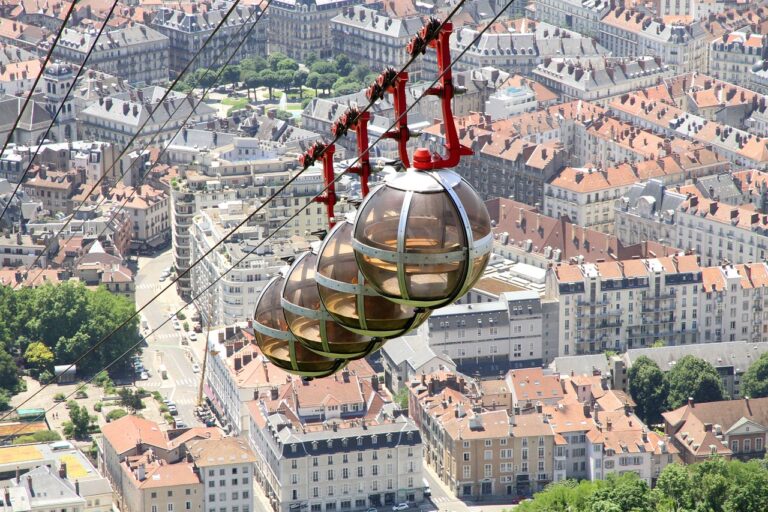Grenoble has been chosen by the European Commission to embody the European Green Capital 2022, winning the title in competition with the other finalist cities. The city succeeds Lahti, the Finnish winner in 2021. Grenoble is the second French city to receive this award after Nantes in 2013.
Grenoble was awarded by a jury of experts for its efforts in climate action in favour of ecological transition.
Table of Contents
European Green Capital for 2022, why Grenoble
Grenoble was awarded the title because it is particularly committed to mitigating climate change and improving energy efficiency.
Grenoble is also the first French city for bicycle commuting thanks to the continuous development of bicycle networks. At the same time, the vision of an urban space as a living space, suitable for pedestrians and cyclists, children and the elderly is taking shape. This is embodied in interventions in the various existing public spaces and in exemplary neighbourhoods.
The green transition is also testified in the effort the city did in taking care of its parks and green spaces. Since 2014, more than 5,000 trees were planted with the goal of planting 10,000 more by 2030.
To combat noise pollution, quiet areas have been created and speed limits reduced to 30km/h. A further essential element for quality of life and the environment is the preservation of the architectural heritage, for which the Grenoble City Council has been conducting a restoration campaign dedicated to the historic centre.
To these actions was added the creation of an efficient food waste collection system, the first in a major French city. In terms of energy performance, the underground heating network now uses nearly 80% renewable and recovered energy. The ambition is to use 100% by 2030.
European Green Capital Award: the criteria used
In order to support the importance of cities in the implementation of the European Green Deal at local level, the European Green Capital Award was established in 2006.
Since 2010, it has been rewarding every year European cities with more than 100,000 inhabitants that stand out for their ecological transition and concrete actions in favour of the environment, with the aim of encouraging them to become cleaner, greener and improve the quality of life of their inhabitants.
The award is based on a rigorous evaluation process with 12 indicators. These are air and water quality, noise pollution, sustainable land and soil use, waste management and circular economy. Again, green growth and innovation, nature and biodiversity management, climate change mitigation, sustainable urban mobility, energy efficiency and environmental governance. The winner cities of the past years were:
- 2021: Lahti (Finland)
- 2020: Lisbon (Portugal)
- 2019: Oslo (Norway)
- 2018: Nimega (Netherlands)
- 2017: Essen (Germany)
- 2016: Ljubljana (Slovenia)
Read also: Reimagining cities is crucial to stop climate change












